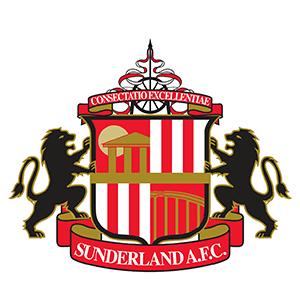On This Day (3rd July 1977): Heroic fight-back earns the respect of Sunderland fans

07/03/2024 01:00 AM
Relegation should have brought a dip in season ticket sales and interest in Sunderland — but instead, you would have thought we had won the cup and qualified for Europe!
The sports pages were full of Wimbledon tennis, particularly Virginia Wade and Ile 'nasty' Nastase. Tucked away in a corner of the back page of the Journal were a couple of bits of news to encourage Sunderland fans and cause pause for reflection.
The 1976/77 season saw us relegated from the First Division following our well-earned promotion the previous season. At Christmas, we were sure-fire certainties for the drop, rooted to the bottom of the league. We had gone ten games without scoring a goal, and with Bob Stokoe in ill health and resigned, Ashington-born Jimmy Adamson had taken over, but without any new manager bounce. Adamson set about dismantling what was left of the team that had won the FA Cup in 1973. Jimmy Montgomery, Dick Malone, and Billy Hughes promptly found themselves sidelined, leaving only Bobby Kerr of the Cup-winning heroes still gracing the Roker Park turf.
It was a tough period to be a Sunderland fan and hard to get behind the dour Adamson and his obvious intention to dismantle Bob Stokoe's team, combined with poor results that made us look like dead ducks! Then a miracle (well, almost)! Youngsters Shaun Elliott and Kevin Arnott joined Gary Rowell in the first eleven, triggering an absolutely wondrous fight back that gloriously failed at the final hurdle at Goodison Park in early May. Relegation does not usually trigger a massively positive reaction from fans, but this was precisely what the Journal was reporting on this date in 1977. The fightback and performances of the team, with the youngsters at the heart of this, had sparked excellent season ticket sales before the new season.
The report told of a new supporters branch being formed in Berwick, and such was the interest that the club had extended its Roker Bingo operation up to that area.
The support for Sunderland in Northumberland right up to Berwick should not have been such a surprise.
Around this period, one of the biggest Supporters Clubs, bar the London branch, was the Morpeth SSC. It was a morale-boosting article and a testament to the loyalty and fervour of a support who would come out in their droves if they had a team that would play for the shirt!
Just below this piece was the news that Tommy Gibb and Dick Malone would be leaving the club and joining Hartlepool. Gibb had joined Sunderland in July 1975 and arrived as a well-respected midfielder with huge league and European experience with Newcastle (for whom he once played 171 consecutive games).
He had struggled to force his way into the team, and while he had started in the first eleven at the start of the 1976/77 season, he quickly lost his place. He only played seven full games and three from the bench in his two seasons with us, so his move on a free transfer was no great surprise.
The news that Dick Malone was leaving was a tad harder to swallow. He had only played nine games in the 1976/77 season and was clearly not fancied by manager Jimmy Adamson. Dick had arrived shortly before Dave Watson in 1970, a £30,000 buy from Ayr United. He had scored twenty goals in his six seasons with Ayr from full back, including a hat-trick.
I witnessed his first games for us, and he quickly endeared himself to fans with his gallops forward, which often included a unique dribbling style and a panache for assists (would that we had been counting this kind of thing back then).
He soon formed a great partnership with Bobby Kerr down our right-hand side, and over the next five seasons, he was our first-choice right back. Like Bobby Kerr, he had great levels of fitness, and out of a possible 210 league games over five full seasons, he only missed five games. He played every game of the 1972/73 FA Cup run and probably played his best game for the club at Wembley in the final, shutting out the mercurial Eddie Gray and finding time for a couple of gallops forward in the dying minutes of that game, eating up valuable time while we were under the cosh!
I was disappointed to read about his free transfer. It felt like the end of an era, and like many who had witnessed his commitment to our cause over his time with us, I could only wish him well.
Having thought I had seen the last of Dick Malone at Sunderland, a short while later, on a cold wet night in October 1978, I witnessed him grace the Roker Park turf once more in Ian Porterfield's testimonial.
I kid you not, as our current team played the lads of 1973 (bar Monty and Dave Watson), he was the player of a very competitive match. Allegedly, this performance saw him reunited with Bob Stokoe (and later Bobby Kerr) at Blackpool, for whom he made forty-nine appearances, before finishing his league career in Scotland at Queen of the South, where he helped them to promotion from the second division in 1981/82, winning many plaudits from 'Doonhamers' fans and teammates alike for his performances.
Dick Malone is a frequent and popular visitor to the Stadium of Light these days. "Super Dick" was the chant that used to greet his gallops forward, and few would argue his performances over that six-season period between 1970 – 1977 earn him an honoured place in our annals.


